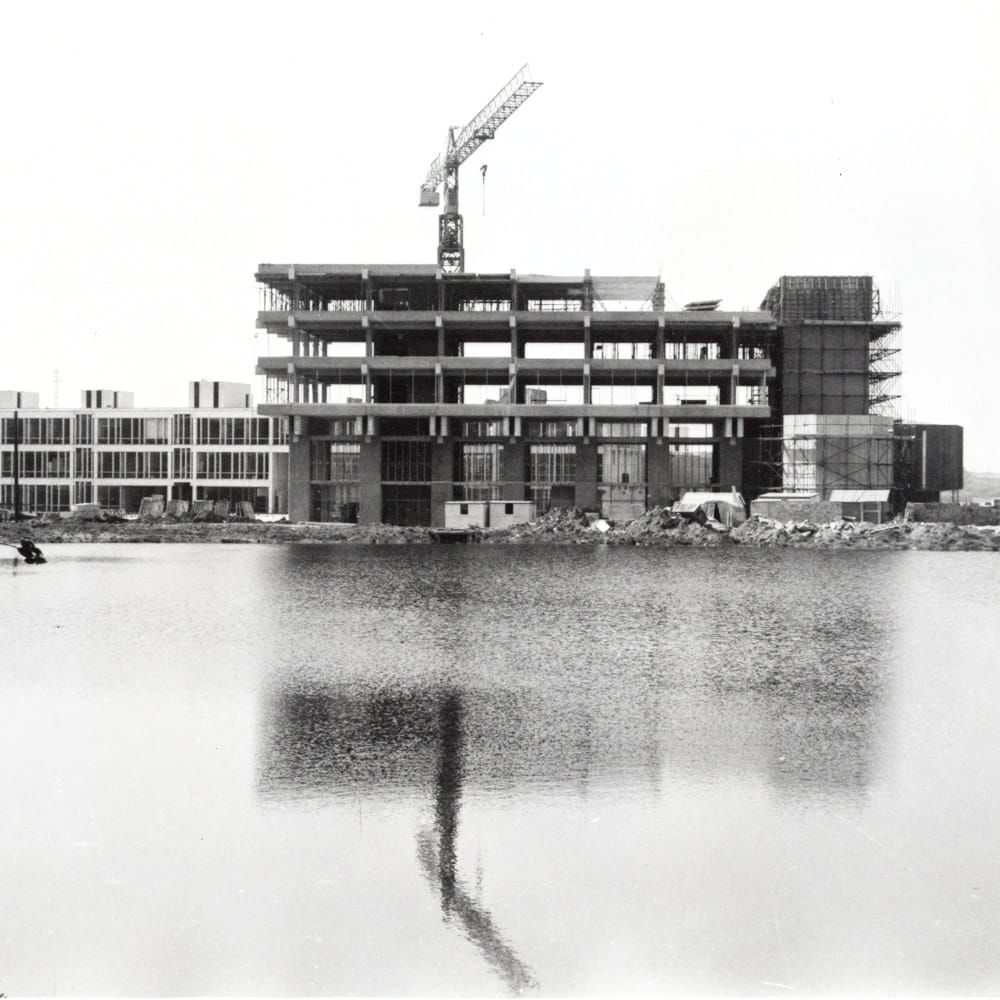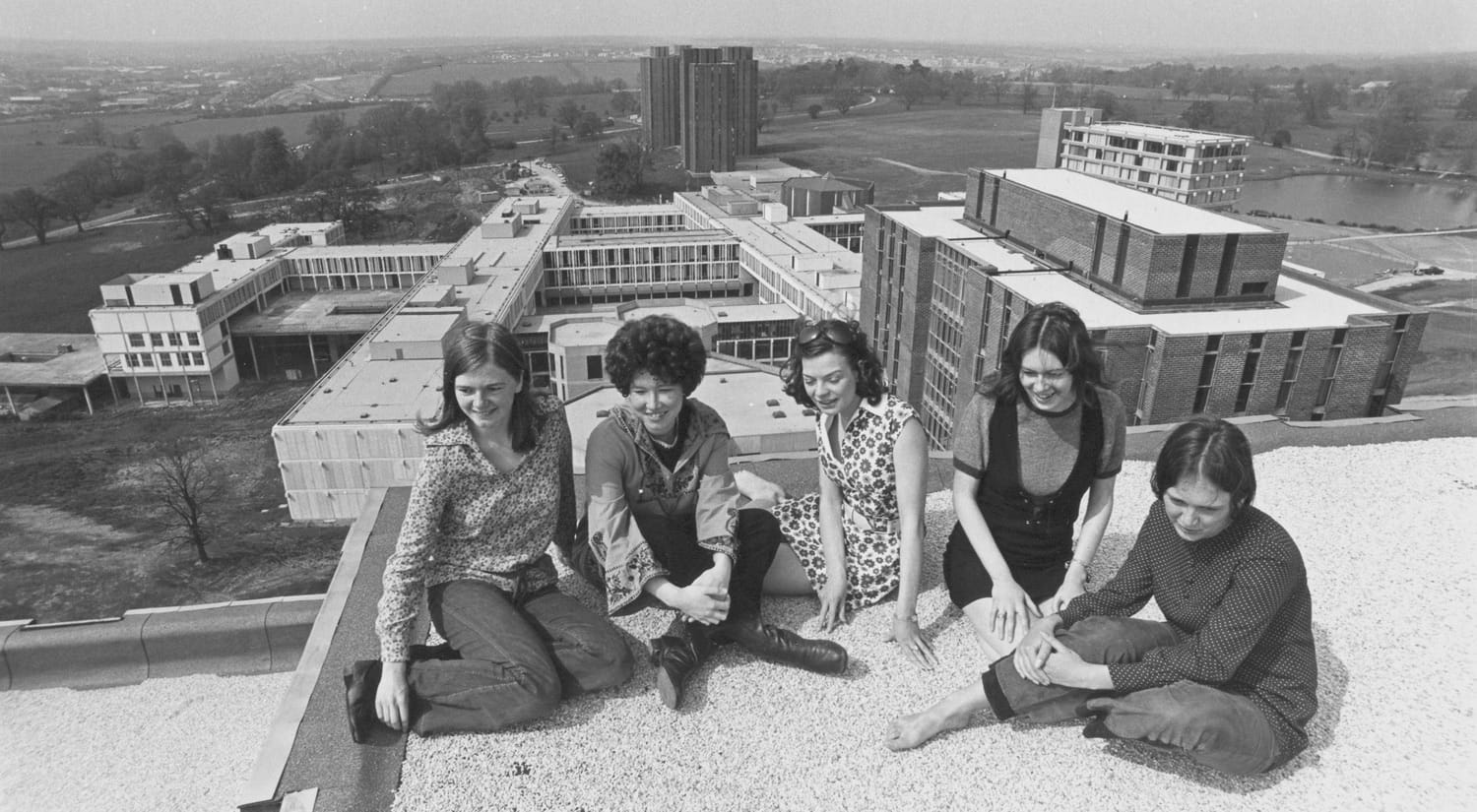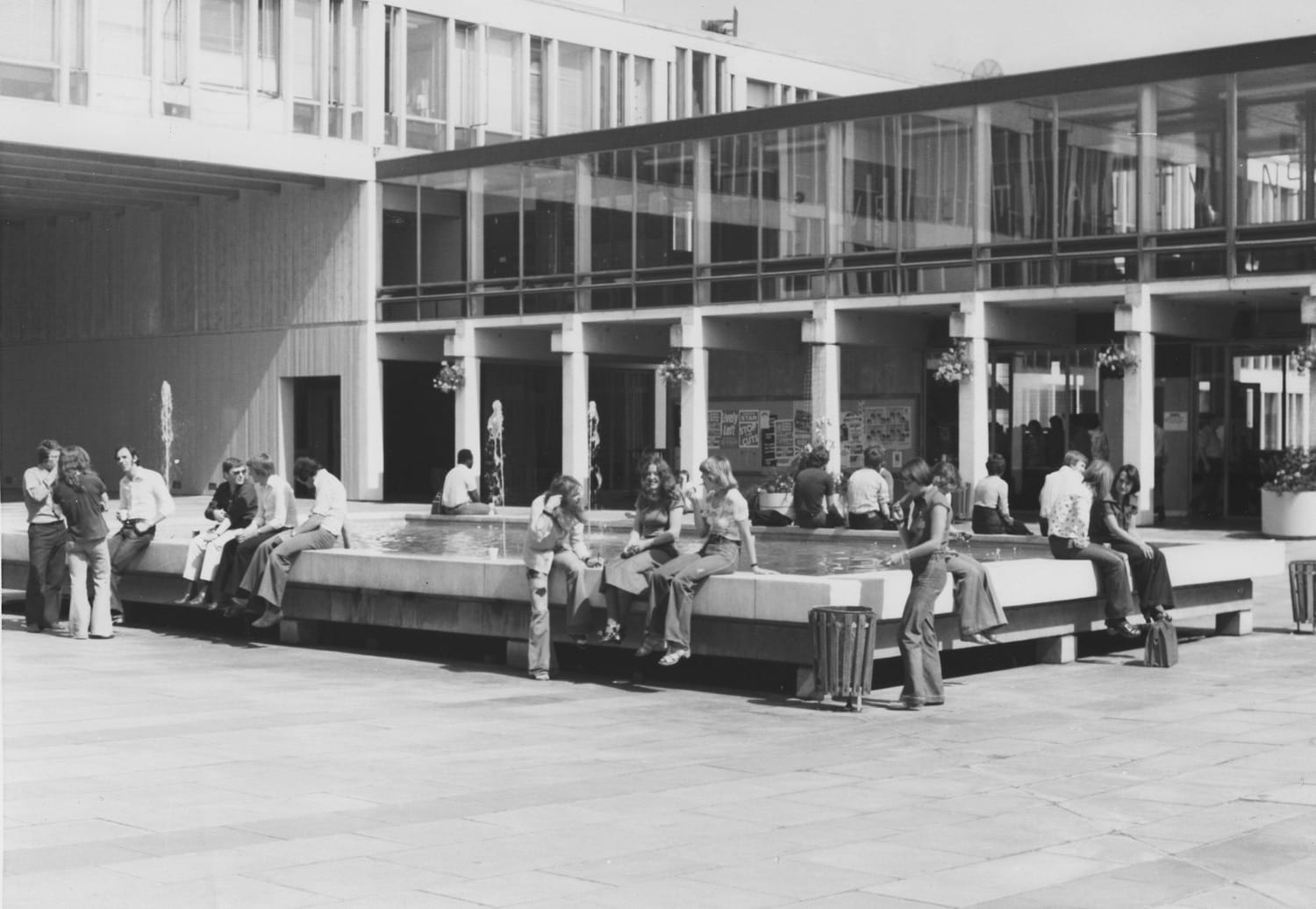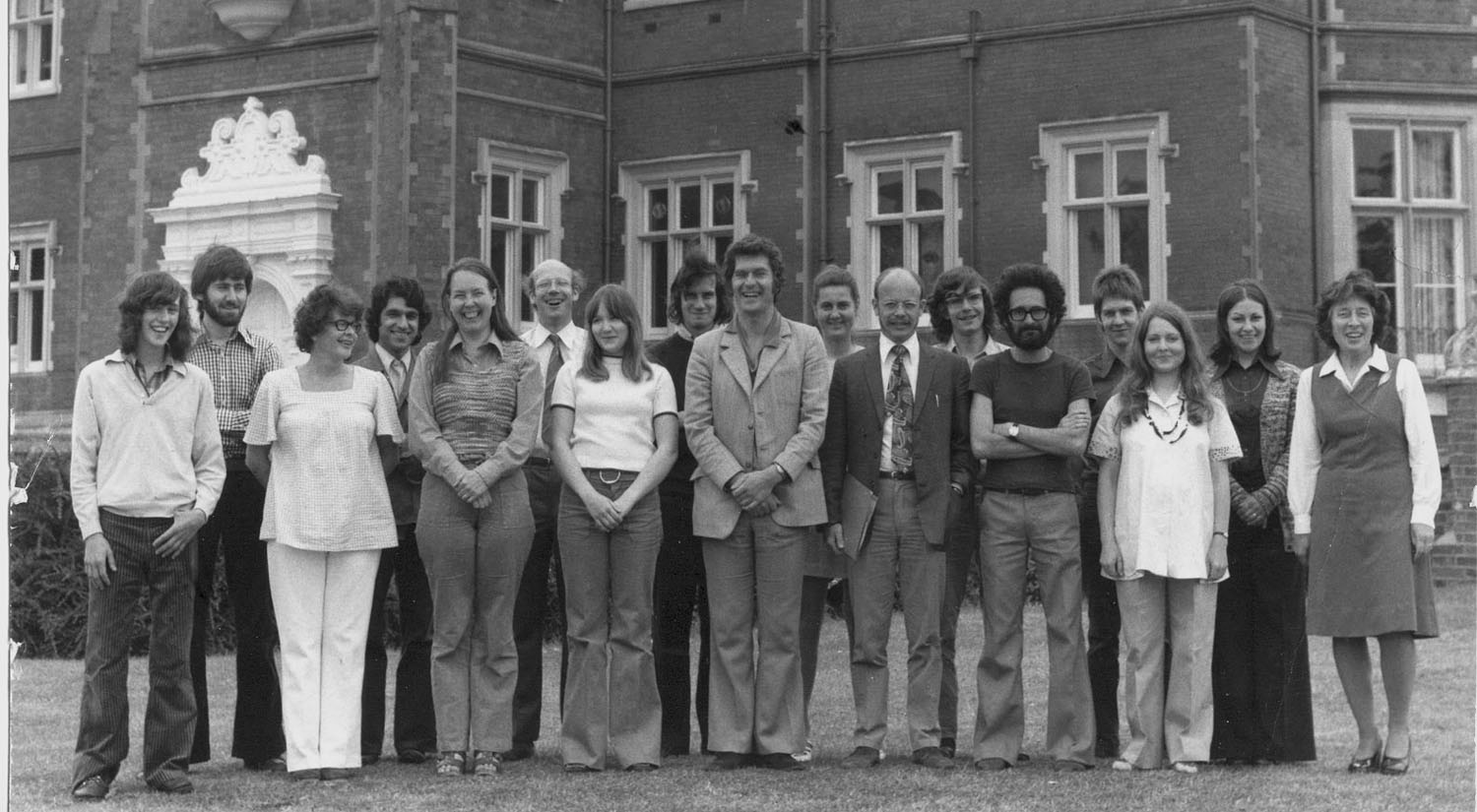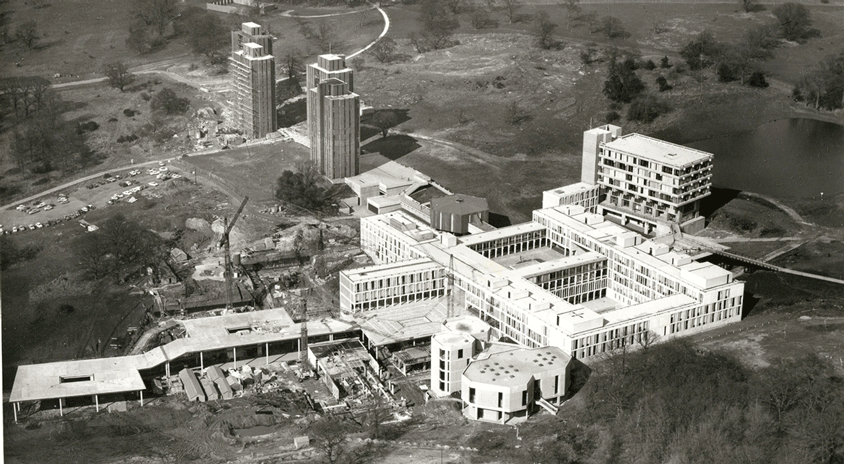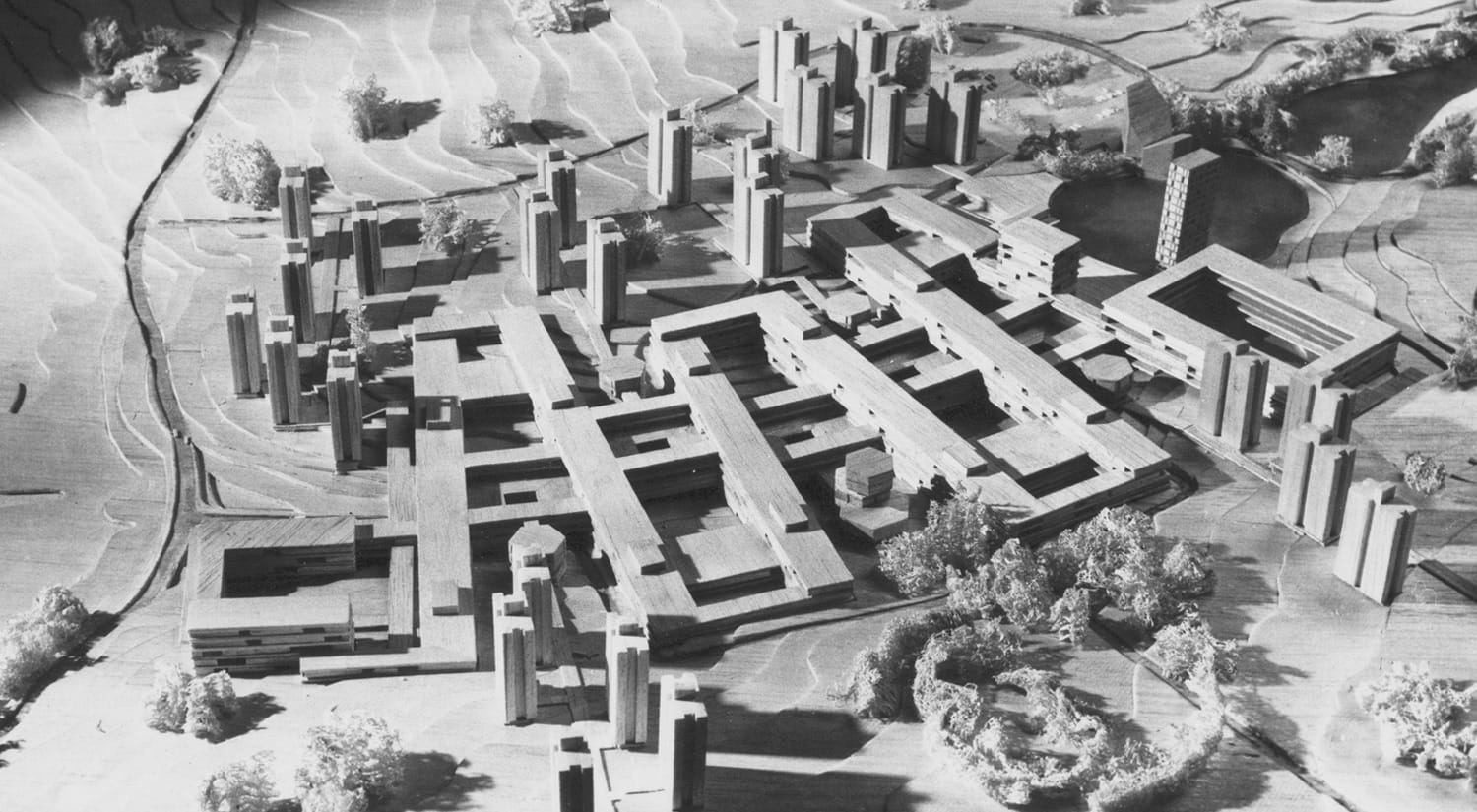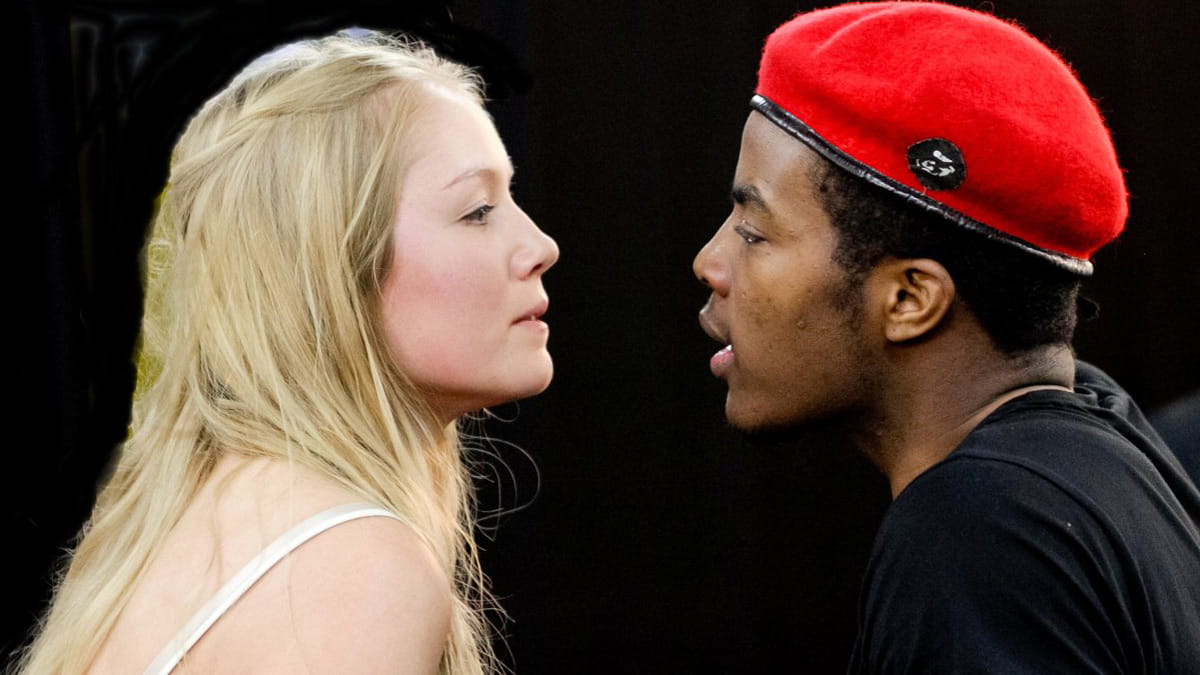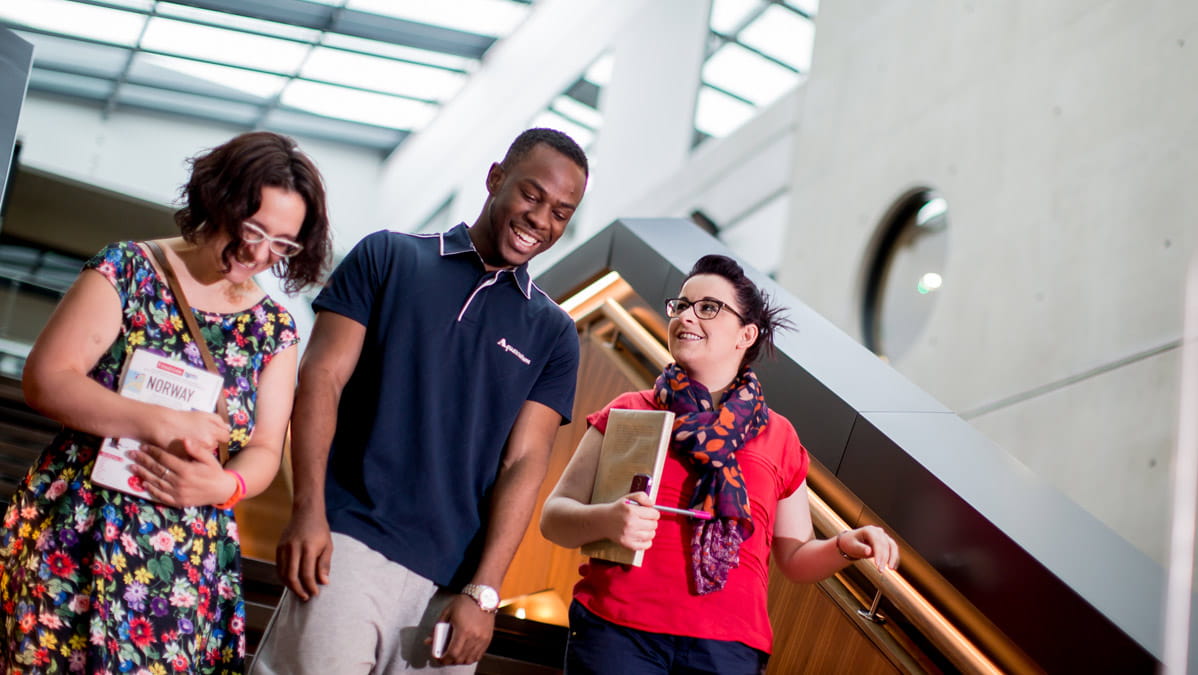Sir Albert's plans were seen as so ground-breaking that he was asked to give the BBC's prestigious Reith Lectures in 1963, the year before we opened. The flagship lectures were a chance to explain how Essex was going to break the mould and challenge expectations about what a university could be. Sir Albert told listeners "radical innovation" would be at the heart of Essex's approach to research and education. You can still listen to one of Sir Albert Sloman’s lectures in the BBC’s Reith Lectures Archive and you can read them online too.
Home to a brave new vision
Essex’s architecture was designed to link social and educational space to encourage a sense of community. ‘Brutalist’ buildings such as the Albert Sloman Library and The Hexagon, created by architect Kenneth Capon, have now become iconic. Capon said he didn’t want his designs to be 'shaggy and soft' so aimed to create 'something fierce to let them work within’. Something Fierce became the title of a major exhibition about the foundation of the University of Essex and 50 years of student life. The impact of the exhibition has continued with elements integrated into the Royal Academy of Arts exhibition Futures Found: The Real and Imagined Cityscapes of Post-war Britain.
Essex Spirit
In 1964, 122 students arrived at our University for the very first academic year, attracted by its bold vision. Over the next five decades close to 100,000 students from more than 140 countries have graduated, and inspired by the inquisitive and ambitious Essex Spirit, they have gone on to make a difference in the world.
We have a proud tradition of encouraging students to challenge convention and think differently, such as our graduate, Nobel Prize winner and economist Professor Chris Pissarides.
Research pioneers
Our academics have produced work which has inspired entire generations and helped establish Essex’s reputation for research in the UK, particularly in the social sciences. This ranges from pioneering work on poverty and inequality by Professor Peter Townsend, to the development of the world’s first publicly available computer language by Professor Tony Brooker. We continue to push the boundaries – from promoting human rights around the world to pioneering the use of big data in developing countries.
Listen to our history
The Creating a University podcast series led by oral history pioneer Professor Paul Thompson tells the story of Essex from its earliest days - through interviews with people who were there, including students, staff from all levels and local residents.
The podcasts are based on archive interviews for the Wivenhoe Oral History Project, established by Professor Thompson, and edited by former BBC journalist Chris Garrington. They are another example of the pioneering research for which Essex is famous.
